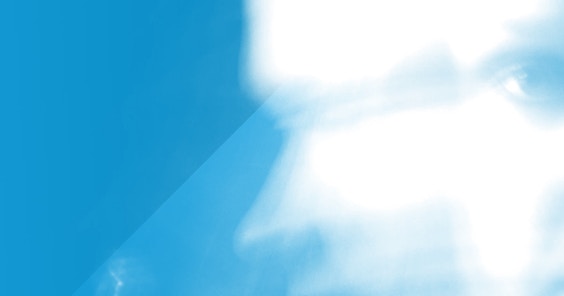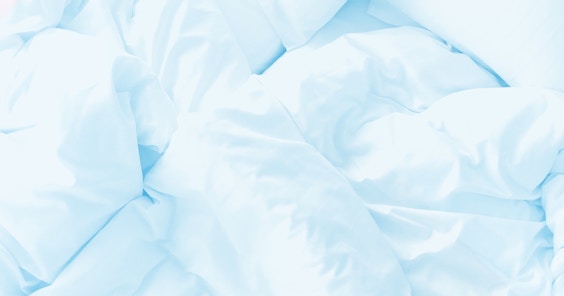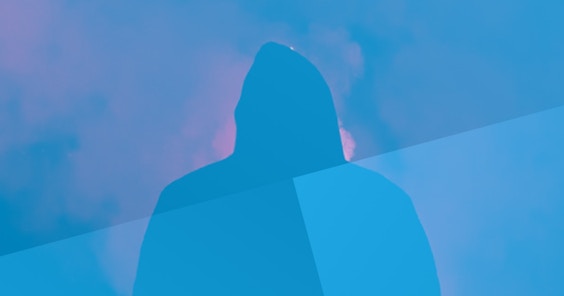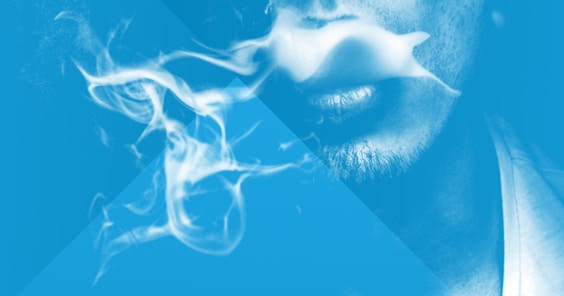I Am Sober is a free app that helps you get some control back in your life.

Cocaine and Anxiety
Last Updated: Thu, January 18, 2024Cocaine use and anxiety are very closely linked. As is the case with several stimulating drugs, the question of whether anxiety came before or after cocaine use is a bit of a chicken and egg situation. Some people who have undiagnosed anxiety disorder subconsciously self-medicate with cocaine. However, cocaine use is also known to cause both anxiety and panic attack disorder in some people. The bottom line is that if you use cocaine- or have recently quit- you are likely to experience abnormally high levels of anxiety. Here’s some more information on why and how to cope:
How does cocaine affect my anxiety?
There are several ways that cocaine use can affect anxiety. Here are the three most common:
-
Hyperactive neurotransmitters: When someone uses cocaine, certain neurotransmitters in their brain go into overdrive. This is the reason why cocaine is so energizing. Two of these neurotransmitters are dopamine and serotonin. Both of these chemicals are necessary in order to function properly. Dopamine regulates attention and emotional response, while serotonin is responsible for regulating mood and sleep. However, when the brain is flooded with too much of these chemicals, it experiences short-term euphoria. This may seem harmless, but it can be very dangerous. This neurotransmitter hyperactivity can cause a slew of side effects, such as racing and uncontrollable thoughts. Oftentimes, these thoughts are negative or paranoia in nature, which can spark feelings of anxiety.
-
Lifestyle: When someone is addicted to cocaine- or any other drug- their entire life revolves around getting their drug of choice. It becomes an obsession. When they aren’t high, they are figuring out how to get high. This obsessive behavior can lead to quite a stressful lifestyle. Some cocaine users lie to or steal from their families, while others can’t keep a job or sustain a relationship. This type of lifestyle can be extremely stressful, which can eventually create anxiety.
-
Side effects: There are many unpleasant side effects of cocaine use. One of the most disturbing is insomnia. Cocaine can cause insomnia and poor sleep quality. Sleep is necessary in order for our bodies to properly function. When someone struggles from this type of sleep deprivation, they can develop symptoms including anxiety and depression.
Is this different than normal anxiety? If so, how?
Anxiety is anxiety. Period. The reason why someone feels anxious has no bearing on whether they are experiencing “normal” or “abnormal” anxiety. Cocaine use can both trigger feelings of anxiety and worsen feelings of anxiety in those with actual anxiety disorders.
How does withdrawal from cocaine affect my anxiety?
Initially, cocaine withdrawal is likely to increase anxiety. Most former cocaine addicts state that they experienced the most intense feelings of anxiety around 10 days sober. This is likely because the brain of an avid cocaine user is used to running in overdrive, due to their hyperactive neurotransmitters. Once the stimulant (cocaine) is removed, these neurotransmitters stop functioning at such a high level. After being flooded with so much dopamine and serotonin, their brains are unable to reabsorb those crucial chemicals, which results in feelings of depression and anxiety.
When will my anxiety start to improve in sobriety?
The short answer is yes, but it may take quite a while. Cocaine use and anxiety disorders are very closely linked. However, everyone’s body is different. Some former cocaine users may feel less anxious after a few weeks, while it may take a few months for others. Those who have diagnosable anxiety disorders may need to be put on some form of antidepressant in order to feel normal again.
What are ways I can improve my anxiety?
Anxiety is a feeling that everyone experiences at one time or another. When they are stressed or worried about a situation, they may experience a fastened heart rate, sweaty palms, and other typical anxiety symptoms. However, for normal people, this feeling passes fairly quickly. For those who have an anxiety disorder or who are detoxing from cocaine, anxiety may be a more constant feeling. It may only take days for your anxiety to subside, but it could also take months. However, one thing is for sure: it will get better with time. With that being said, there are several tips and tricks to help alleviate anxiety. Here are some of the most effective ways to improve your anxiety:
-
Practice deep breathing: Deep diaphragmatic breathing can spark the transition from sympathetic nervous system- where feelings of anxiety sprout- to parasympathetic nervous system- where feelings are calmer.
-
Exercise: Exercising releases endorphins, which combat feelings of anxiety.
-
Avoid caffeine: Caffeine stimulates the central nervous system, which can trigger feelings of anxiety.
-
Get enough sleep: Sleep is absolutely crucial in order for our bodies to function properly. When our bodies don’t get enough REM sleep, we can experience feelings of stress, anxiety, and depression. However, if you are detoxing from cocaine, you may also be struggling with insomnia or poor sleep quality. To help alleviate both insomnia and anxiety, it could be helpful to get regular exercise and develop a strict routine of going to bed and waking up at the same time every day.
-
Make time for soothing activities: Taking a walk, listening to music, or reading a good book can all help keep our bodies calm and our minds on other things. When we aren’t thinking about ourselves and our own lives, we aren’t able to overthink these details.
-
Meditate: Studies have shown that meditation is proven to reduce feelings of anxiety. This is likely due to a combination of both mindfulness and deep breathing.
Cocaine is a highly addictive drug that can have a wide range of negative effects on the body. If you are an avid cocaine user experiencing anxiety, the best solution is to get sober. In fact, sobriety can likely solve all of your other problems, too. By continuing to use cocaine, you will only perpetuate the vicious cycle of euphoria followed by crippling fear and anxiety. Instead, take what you learned in this article and let it become your stepping stone into sobriety.
Other resources:
I Am Sober is a free app that helps you get some control back in your life.





